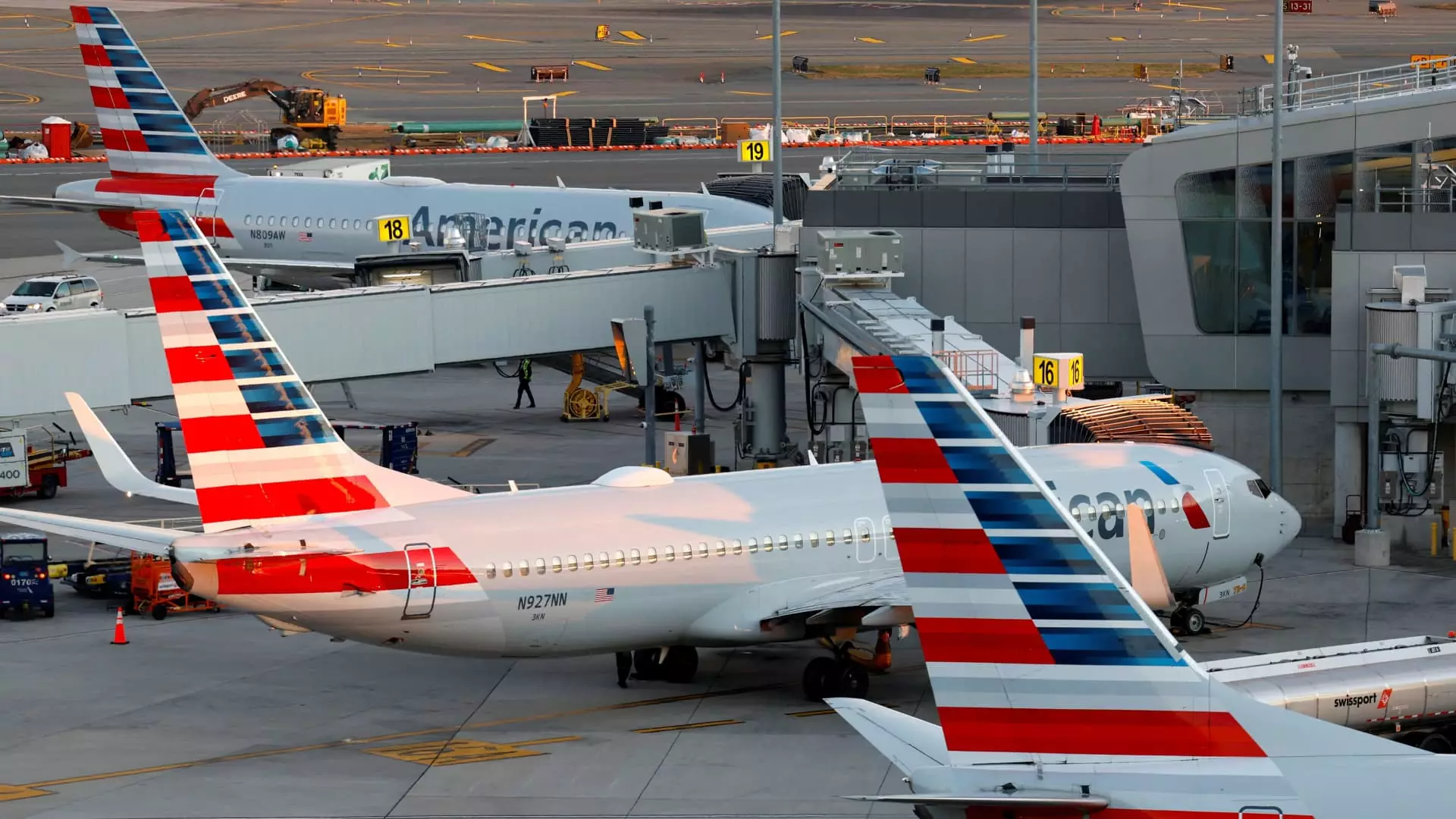In a significant move for its financial strategy, American Airlines has finalized a deal with Citigroup, effectively ending its longstanding partnership with Barclays. This transition marks a pivotal moment for the airline as it seeks to enhance its revenue through co-branded credit card offerings. With an ambitious aim to boost payments received from these partnerships by 10% annually, American Airlines is taking a calculated risk in an increasingly competitive landscape.
The most recent twelve months have proven lucrative for American Airlines, with a reported revenue of $5.6 billion generated through its co-branded credit card initiatives. This figure underscores the importance of these financial alliances in the airline’s overall business model. Historically, co-branded cards serve as a vital revenue stream for airlines, enabling them to sell frequent flyer miles to banks and subsequently profit from customer spending. In this regard, American Airlines’ relationship with Citigroup is anticipated to bolster its income and, consequently, its ability to compete with industry giants like Delta Air Lines.
American Airlines faces stiff competition as Delta has proven to be a formidable player in the co-branded credit card arena. In 2022, Delta’s collaboration with American Express resulted in approximately $7 billion in revenue, with projections indicating a future growth to about $10 billion. This stark contrast highlights the necessity for American Airlines to not only catch up but to carve out a sustainable foothold in this space. By transitioning to Citigroup, American aims to level the playing field and potentially enhance its offerings to customers.
With the transition set to occur in 2026, American Airlines has announced plans to gradually shift its existing cardholders from Barclays to Citigroup. However, specific details surrounding this transition remain sparse, raising questions about the execution of the strategy. Citigroup will also take charge of credit card sign-up promotions at various customer touchpoints, including flights and airport locations, which may help strengthen brand loyalty while enhancing customer engagement.
The immediate market reaction to this announcement has been positive, with shares of American Airlines climbing over 6% in premarket trading after the news broke. Investors are seemingly encouraged by the airline’s raised revenue forecasts for the upcoming fourth quarter. This reflects a growing confidence in American Airlines’ strategic direction, especially as it takes bold steps to secure a more profitable future through this exclusive partnership with Citigroup.
The transition to Citigroup signals a renewed focus for American Airlines on leveraging financial partnerships to enhance its profitability. As the airline navigates this new territory, the success of this partnership may redefine its financial performance and competitive positioning in the airline industry.

